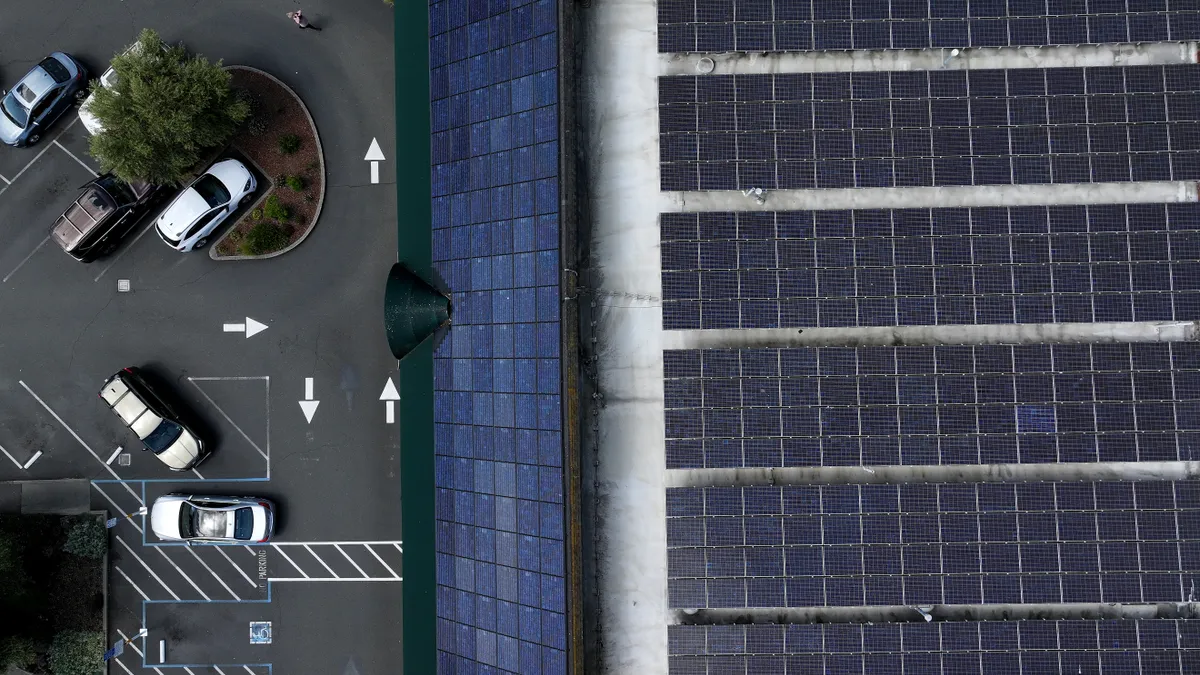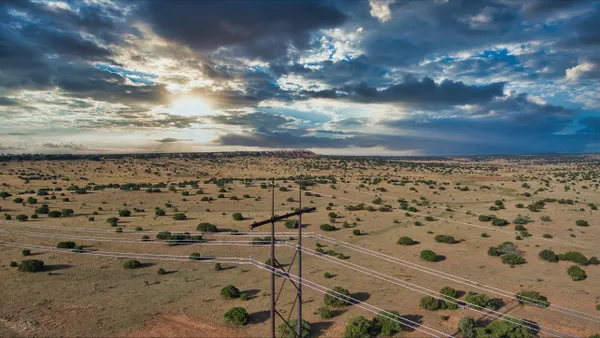Dive Brief:
- An Arizona administrative law judge filed a recommended order and opinion (ROO) in the state's value of solar docket that acknowledges consumers have a right to reduce their demand through installing solar, but calls for a limit on forecasting avoided costs for that generation to five years, rather than 20 to 30.
- In the ROO, the judge wrote a five-year forecast better reflects the intervals between utility rate cases, but solar advocates contend that a longer-term forecast better quantifies the full costs and benefits of distributed solar — the goal of the proceeding.
- The ROO did recommend a grandfathering provision for older rooftop solar users to avoid a similar situation to Nevada, where two large developers left the state after regulators excluded a grandfathering provision in solar incentive reforms.
Dive Insight:
A new recommended order from Chief Assistant Administrative Law Judge Teena Jillian was filed last week to mixed reviews, causing solar advocates to worry that it would hurt compensation for excess energy from rooftop solar users in the future if approved by the Arizona Corporation Commission (ACC).
The order "leaves a big open question" for new solar customers, according to Briana Kobor, Program Director with Vote Solar.
"Most worryingly, it does not allow for a full consideration of the costs and benefits that customers' solar energy systems provide because it restricts the analysis to a 5-year planning window or limits the compensation based on the price paid for other resources," Kobor said in a statement. "This narrow calculation could make solar a bad deal for Arizonans, putting clean energy progress and solar jobs at risk in the state."
ACC regulations require the utilities to plan other aspects of their grid systems 15 years out, she noted. "[T]here's no reason that customer-driven solar should not be planned for in the same way."
The order recommended against a request by major utilities Arizona Public Service Co. and Tuscon Electric Power to use a cost-of-service methodology to establish a value of solar proceeding, but also rejected Vote Solar's request for a third party to conduct cost-of-service and value of solar analysis in the proceeding. Solar advocates pointed to a lack of transparency in proceedings as justification for their request.
"It will be of utmost importance in upcoming electric utility rate cases for all parties to be on equal footing with regard to the ability to use the cost of service model to illustrate their positions," the order reads. "At this juncture, we agree with Staff that such a requirement is not necessary. However, we will adopt RUCO's and Staff's recommendations in regard to requirements for full transparency of all models used in electric utility rate cases."
Arizona has a reputation for rancorous debates over rooftop solar compensation, but ACC regulators opened a value of solar docket last year in an attempt to resolve the issues over compensation for once and for all.
In July, a ROO filed by Administrative Law Judge Jane Rodda for the UES rate case, which sought mandatory demand charges on rooftop solar customers, said the VOS docket would "yield significant new information about how DG solar should be compensated."
ACC regulators took her recommendation to heart, pushing back a decision over solar rates in the UES case until after the VOS docket concludes, which could happen as early as this month. A decision for TEP's proposed solar programs was also delayed for the same reason.
But the hearings have also showed how political issues from a particularly bitter 2014 regulatory election cycle and lingering distrust from past policy issues could distract from policymaking for the rest of 2016. An attempt at compromise between APS and SolarCity lasted only one day.
Commissioner Robert Burns, propelled by the allegations and also seeking reelection with SolarCity's backing, sought to hire an outside lawyer to investigate the rate-making process two months ago. But regulators voted his proposal down in a 3-1 vote.
The ROO is a recommendation to regulators, not a final order. Arizona regulators will consider its provisions in the coming weeks.













